What to Eat and What to Avoid in Appendicitis?
By Dr. Shekhar Takale +2 more

Get,

to manage your symptom
Get your,


4 Cr+ families
benefitted

OTP sent to 9988776655



You’ve successfully subscribed to receive
doctor-approved tips on
Whatsapp

Get ready to feel your best.

Hi There,
Download the PharmEasy App now!!


Register to Avail the Offer
Send OTPBy continuing, you agree with our Privacy Policy and Terms and Conditions

Hi There,
Sign up on PharmEasy now!!
Trusted by 4 crore+ families

OTP sent to 9988776655



You have unlocked 25% off on medicines




Code: NU25

Comments


Leave your comment here
By Dr. Shekhar Takale +2 more
Table of Contents
Appendicitis is an inflammation of the appendix that causes severe abdominal pain. Located at the end of the large intestine, the appendix is a small, tube-like structure with no discernible purpose. Infection usually results in inflammation of the appendix due to blockages in the blood supply for any reason1.
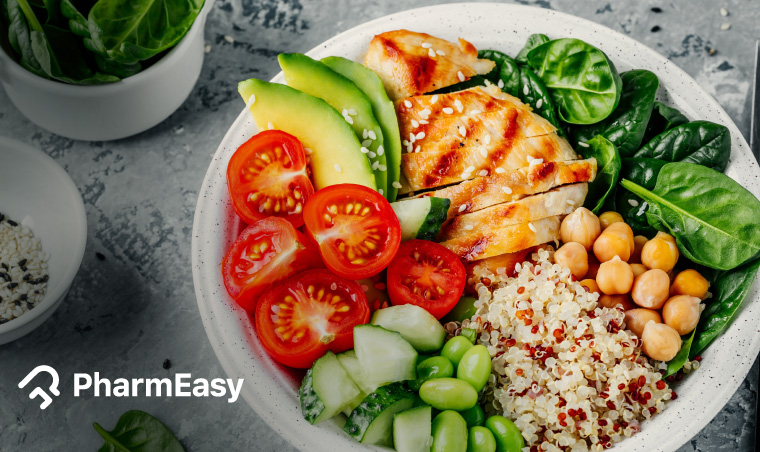
In India, approximately 0.34% of school-age children have suffered from Appendicitis. As for adults in India, approximately 0.25% suffer from Appendicitis.
Appendicitis results from a blockage within the appendix known as the appendicitis lumen. When bacteria or viruses infect the digestive tract, they cause swelling of the lymph nodes, which squeezes the appendix and causes obstructions. As a result, the appendix becomes inflamed, under pressure or blood flow is impaired. Appendicitis may also be caused by trauma to the abdomen or genetic factors. An untreated obstruction could result in a ruptured appendix, resulting in major complications.
Did You Know?
A healthy diet can have a positive impact on your health. Including certain foods can be helpful in managing your appendicitis symptoms and may help reduce the pain
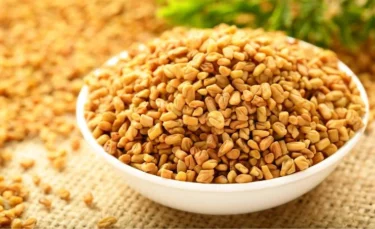
Fenugreek may help reduce pain by inhibiting the formation of mucus and pus within the appendix. Two tablespoons of fenugreek seeds should be boiled in one litre of water for about 30 minutes. Let it cool and drink it twice a day for faster results.
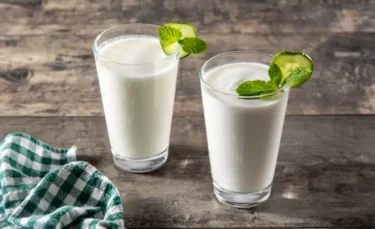
Buttermilk is known to help with the symptoms of appendicitis. Including buttermilk in your daily diet can help you. It’s best to prepare buttermilk at home and drink it little by little.
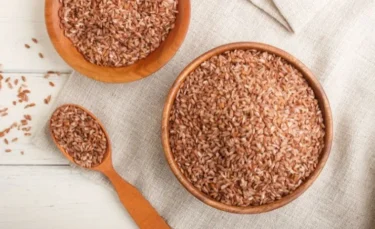
Brown rice can help you improve your overall health and digestion. Switch to brown rice from white rice to see evident health improvement in you.
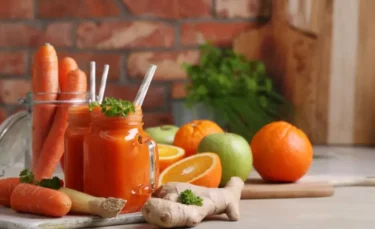
Drink juices made from vegetables like carrots, beets, and cucumbers to help lower pain. Vegetable juices are a healthy source of essential nutrients and can be very good for your whole body. You can also combine vegetables like radish, coriander, and spinach to help you with the pain faster and better.
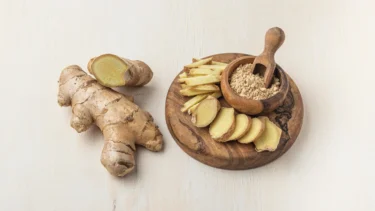
Ginger is known for its medicinal properties. Its anti-inflammatory and detoxifying nature can have significant health benefits. Mix ginger, turmeric, and honey and take it twice a day. This may also help with swelling, nausea, and other symptoms of appendicitis.
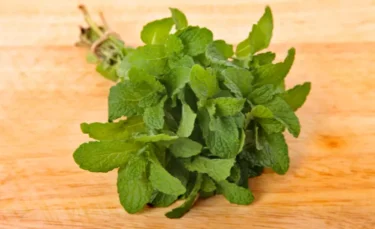
It may help soothe a number of appendicitis symptoms, including nausea, vomiting or gas. Mint tea can be made by boiling mint leaves in water and drinking it three times daily. You can chew some mint leaves.
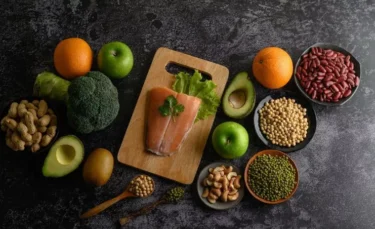
Fresh fruits, boiled sprouts, oats, etc., can be prepared with the least oil and spices. Khichdi, Dalia, and Upama are some healthy and easy-to-digest food options.
Getting it removed surgically may be important in certain cases where the pain is persistent, severe and associated with multiple episodes of vomiting and doesn’t resolve on its own.
Dr. Ashish Bajaj, M.B.B.S., M.D. in Clinical Pharmacology and Toxicology
There are certain food habits that can make appendicitis worse and should be avoided. The foods to avoid in appendicitis are:
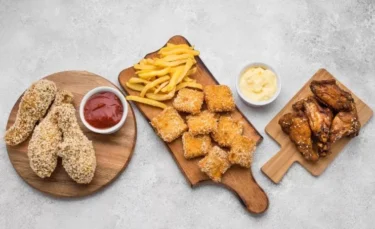
Fried, oily food can be bad for your digestive system. Avoid fried junk food as much as possible. Fried food can even worsen your appendicitis symptoms.
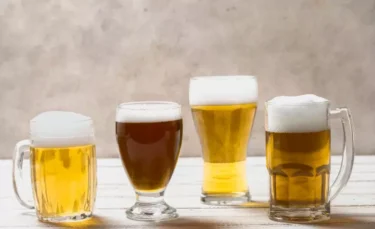
Quit alcohol. It is very important for appendicitis patients to quit or reduce their alcohol intake. Alcohol is bad for your health and can make your Appendicitis worse.
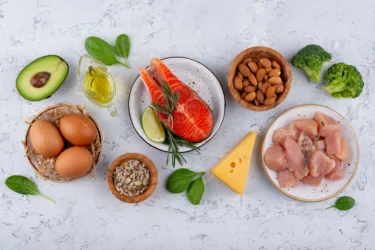
Fatty foods can be very hard to digest. Avoid fatty foods and fatty meats to bring a change in your overall health. Fatty foods can be bad for your health.
Also Read: Typhoid – What to Eat and What to Avoid?
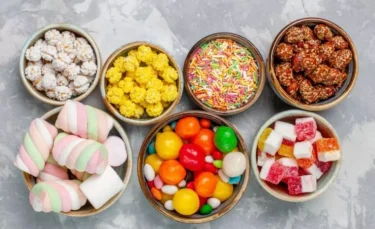
Any sugar other than natural sugar from fruits can be bad for your health. Refined sugar can trigger your diarrhoea and can make your Appendicitis worse. Avoid foods like sweets and chocolates, and reduce the intake of sugar in your regular diet.
Avoid these food habits to prevent appendicitis from getting worse. Speak to a doctor about what to eat and avoid during Appendicitis and post-surgery for recovery. Every person is different, and dietary restrictions may vary based on your underlying medical conditions.
In appendicitis, the goal is early surgery, so once appendicitis is confirmed, the patient should have nothing by mouth till surgery is finished. After surgery, it is advised to have a soft diet.
Dr. M.G. Kartheeka, MBBS, MD(Pediatrics)
Also Read: What to Eat and What to Avoid in Anal Fistula
Appendicitis is a painful condition that needs immediate medical attention and surgery; however, there are certain foods that, if included in your regular diet, can help you deal with your Appendicitis better. A well-balanced diet is essential for staying safe and healthy, including vegetables and fruit juices, and protein can be beneficial for Appendicitis. You should seek immediate help for Appendicitis because if it ruptures inside, the infection can spread and make things worse. Along with the above-mentioned foods, make sure to bring about positive lifestyle changes, such as quitting alcohol.
The pain of appendicitis may start in the centre of the abdomen, may come and go, but within a couple of hours, it may go to the right lower side of your abdomen, suggesting a classical sign of appendicitis1.
Dr. Ashish Bajaj, M.B.B.S., M.D. in Clinical Pharmacology and Toxicology
Also Read: 11 Home Remedies For Typhoid!
A healthy diet that includes vegetable juices and fruits can help you deal with your Appendicitis better and lower abdominal pain. However, these foods can never cure your Appendicitis. To get rid of Appendicitis completely and prevent any serious complications, you must opt for surgery or treatment as advised by a doctor.
If you notice symptoms similar to Appendicitis, avoid unhealthy food. It is dangerous to eat and drink unhealthy or use pain remedies, antacids, laxatives or heating pads, which can rupture an inflamed appendix. Consult a doctor about the food you can eat when dealing with Appendicitis.
Eggs fall under a soft diet, which is easy to digest and good for People with Appendicitis. A soft diet includes foods such as milk, fruit juices, boiled potatoes, soups, and eggs.
Disclaimer: The information provided here is for educational/awareness purposes only and is not intended to be a substitute for medical treatment by a healthcare professional and should not be relied upon to diagnose or treat any medical condition. The reader should consult a registered medical practitioner to determine the appropriateness of the information and before consuming any medication. PharmEasy does not provide any guarantee or warranty (express or implied) regarding the accuracy, adequacy, completeness, legality, reliability or usefulness of the information; and disclaims any liability arising thereof.
Comments

Leave your comment...

View all comments(1)
You may also like
Good information